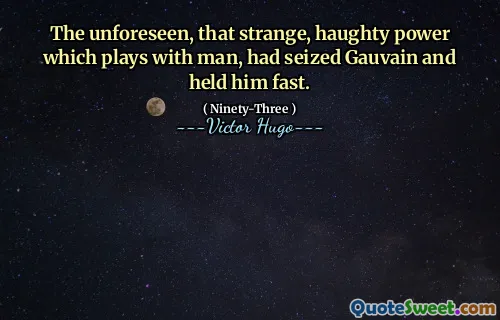A tempest ceases, a cyclone passes over, a wind dies down, a broken mast can be replaced, a leak can be stopped, a fire extinguished, but what will become of this enormous brute of bronze?
In Victor Hugo's "Ninety-Three," a powerful metaphor is used to illustrate the fleeting nature of natural disasters compared to the lasting impact of war and violence. The imagery of a tempest, cyclone, and dying wind suggests that such events are temporary and can be addressed through restoration and repair. The idea that a broken mast can be replaced or fires can be extinguished highlights humanity's resilience and ability to recover from physical catastrophes.
However, the quote poses a poignant question regarding the fate of the "enormous brute of bronze," which symbolizes the enduring consequences of conflict. Unlike natural disasters, the scars left by war are more challenging to overcome. This contrast underscores the long-term repercussions of societal violence and struggles, leaving the reader to ponder the lasting impact of human actions and the profound challenges of healing and rebuilding in the aftermath of such events.






